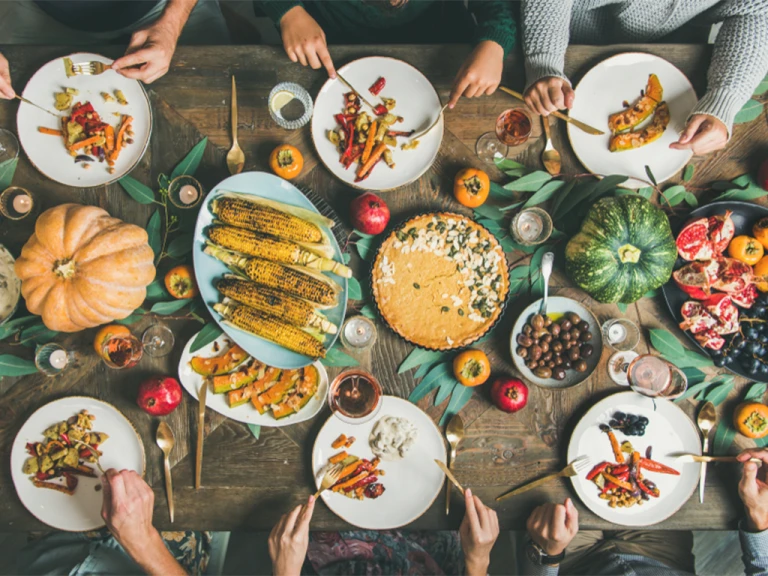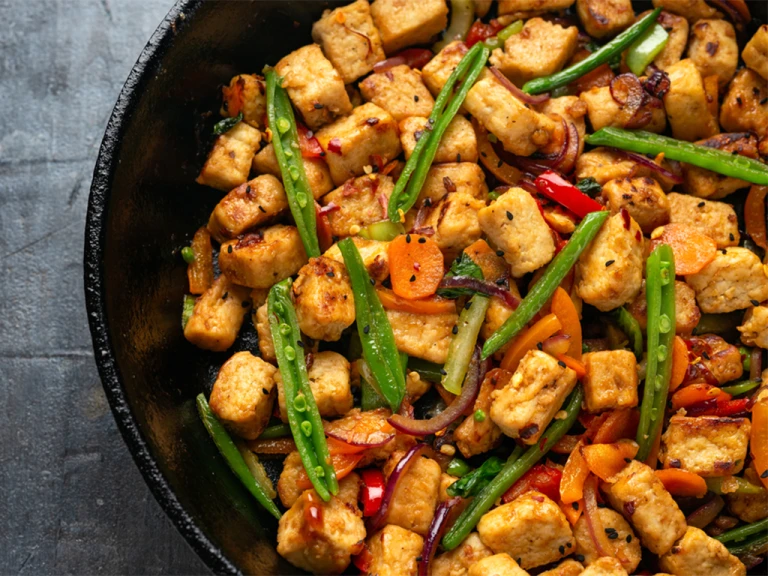
Healthy Weight Loss: Myths About Food

If you’re trying to lose weight, myths, lies and misinformation can derail your progress. Here are the 8 biggest myths about food and the facts behind each.
Separating weight-loss myths from fact can help you make the right choices on your journey to losing weight. With so many myths, misconceptions, and lies about weight loss and food, it makes it difficult to stay healthy and achieve your goals. Losing weight means having a healthy relationship with food and knowing what information you can trust. Find out the biggest weight loss and food myths and what is proven to make food work for you.
8 biggest food myths
-
It’s better to eat frequent smaller meals than three main meals a day
If your goal is to lose weight, then your overall caloric intake is more important than whether you’re eating a small or large meal. There is no difference between three meals of 600 calories or six meals of 300 calories each! For weight loss, the general rule is to consume fewer calories than you burn. So as long as you are burning off calories through exercise and monitoring your caloric intake, you can eat any meal or portion so long as it doesn’t take you into a caloric surplus. -
Eggs are bad for you because they are high in cholesterol
Eggs do contain cholesterol, and too much cholesterol can be harmful. However, saturated fats raise blood cholesterol more than dietary cholesterol does, and an average egg contains just 1.6g of saturated fat. Aside from this, eggs are also a great source of protein and contain important vitamins & minerals including selenium, vitamin D, B6, B12, zinc, iron, and copper. So get cracking, scrambling, and poaching! -
Skipping meals helps you lose weight
While it might seem like an easier way to fast-track your weight loss, skipping meals is never a good idea. Depriving yourself of meals can backfire by leading to cravings and overindulging in your next meal. It also means you’re missing out on essential vitamins & minerals your body needs to maintain optimum health and function. -
You shouldn’t eat after 8pm
There’s this myth that you shouldn’t eat after 8pm or beyond dinner if you want to lose weight. The truth is, eating at night-time isn’t going to pile on the pounds! A calorie is a calorie no matter what time of day you’re eating. If you are concerned that you tend to over-snack after dinner, make sure you’re eating a protein-dense meal for dinnertime to keep you feeling satiated. -
A raw food diet is healthier
One myth exists that a raw food diet is healthier because cooking food kills off important nutrients and enzymes. The truth is, you can get all the nutrients you need from a range of foods and a range of cooking styles. Not to mention, there are foods that shouldn’t be consumed raw. This includes dairy products, seafood, and meat. These raw foods should be cooked in order to get rid of any bacteria. -
All the fat found in fish is good fat
The truth is, only about 30% of the fat found in fish is ‘good’ omega-3 fat - depending on the type of fish. The rest is made up of ‘bad’ fat which can raise cholesterol levels and contains no health benefits. -
Mycoprotein isn’t safe to eat
There has been some misinformation about mycoprotein - the main ingredient found in Quorn - and its safe consumption. In the past, consumers have claimed that they experienced negative reactions to Quorn's mycoprotein. These reports included symptoms of nausea and allergic reactions.
In fact, Quorn's mycoprotein allergic reaction is very uncommon with only 1 in 150,000-300,000 chance. In comparison, peanut allergy reaction is 1 in 200 and soy is 1 in 300.
It is true that if you have a known allergy to fungi - such as mushrooms - then you should avoid mycoprotein. For the rest of us, however, Quorn's mycoprotein is completely safe to eat. -
Quorn isn’t good for you
If you’re concerned whether Quorn will negatively impact your weight loss, then the following facts should help! Quorn uses Quorn's mycoprotein in all its products. This natural fungus is fermented and then made into various Quorn meals. Quorn's mycoprotein is naturally high in protein with 11g per 100g serving. It also contains a healthy amount of fibre and is low in both fat and saturated fat. Quorn doesn’t contain sugar or negligible salt and is low in carbohydrates (9g per 100g) making it a great meal swap for anyone with a goal to lose weight or who wants a healthier diet.
Fact: Quorn is a healthy meat-free alternative
Myths existing about Quorn being unhealthy are false. Quorn has been specifically made with the health of people and the environment in mind. Sourced from a natural fungus, Quorn's mycoprotein - which is found in all Quorn products - contains all the essential nutrients you need. Quorn is also packed full of protein, increasing the feeling of fullness and promoting muscle growth, which helps aid weight loss. Find a range of healthy and delicious Quorn recipes to try and experience the benefits for yourself!
Recent news
All news




